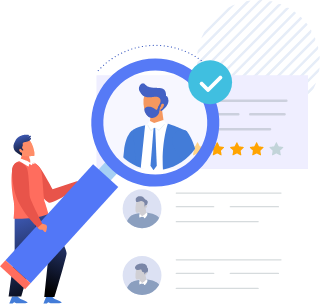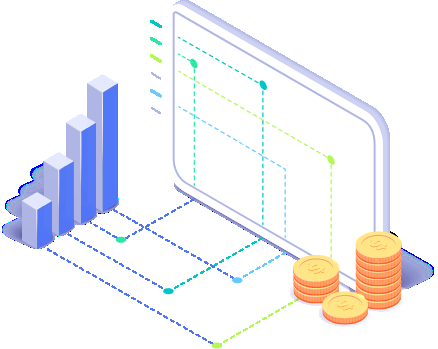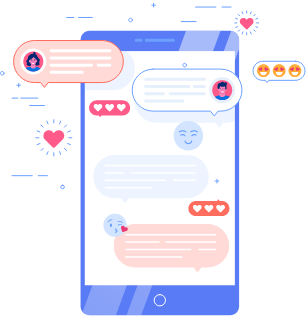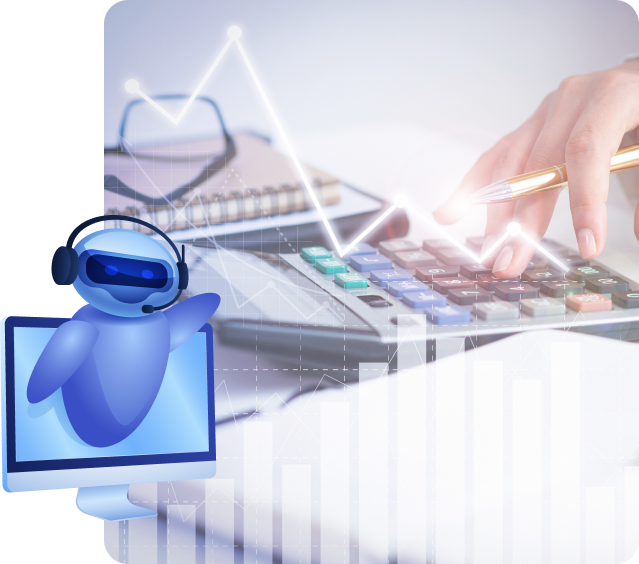Healthcare Software Development Company
Building secure, regulatory-compliant, and patient-centric healthcare software solutions
As a pioneer healthcare software development company, we have a team of certified experts skilled at creating healthcare models that focus on prevention, improvement, and prediction. With proven experience in delivering healthcare software, we provide advanced healthcare solutions with HIPAA compliance to promote well-being.
-op.webp?width=531&height=469&name=healthcare-banner-image%20(1)-op.webp)
-
Top Rated Talent
-
IP Protection & Strict NDA
-
Quick & Easy Onboarding Process
-
Flexible Hiring Models
Healthcare Software Development Services We Provide
Our certified healthcare software engineers offer top-notch custom healthcare software development services, including migration, consulting, and custom solutions. We focus on meeting client needs and using advanced technology to create seamless solutions that benefit healthcare professionals and patients.
Custom healthcare software development
Our healthcare programmers excel at developing custom healthcare solutions with a strong emphasis on security and compliance. Acquire secure and customized telehealthcare software with us to ensure the protection of sensitive healthcare data, improved patient care, and compliance with HIPAA regulations.
Healthcare software integration
With a thorough analysis of your current systems, we find potential integration points. Our developers integrate different software platforms, like electronic health records (EHR) and patient management systems, to seamlessly share information. This helps healthcare operations run smoothly and improves patient care by ensuring important information is always available.
Healthcare software modernization
Whether you want to modularize or migrate your existing system, our dedicated developers can revitalize your healthcare web solutions with effective strategies. From incorporating feature-rich elements to strategic evolution or enhanced functionalities, we transition smoothly from legacy systems with no data loss. Hire software developers to modernize your existing systems.
AI-powered healthcare solutions
Transforming the healthcare processes and workflows with custom AI-powered healthcare solutions. Leveraging advanced AI technologies, our developers enhance diagnostic accuracy, overall efficiency, decision-making capabilities, and patient interactions. Hire AI developers to ensure holistic improvement of your healthcare organization’s overall operations.
Healthcare software product development (HPD)
We provide Healthcare Software Product Development (HPD) services tailored to the needs of medical professionals. Our expertise includes creating software product solutions like telemedicine platforms, electronic health records (EHR) systems, and patient management tools. Hire healthcare software developers to get compliant and custom software development solutions for your healthcare delivery.
Healthcare IT consulting
Being a reliable healthcare software development company, our subject matter experts assist healthcare app enthusiasts in creating digital platforms using the best technologies for their needs. With our healthcare software services, you can get a software solution that can handle traffic effectively and scale when needed.
(1).png?width=339&height=311&name=healthcare-cta(1)(1).png)
Partner with YTII to develop HIPAA and GDPR-compliant healthcare software solutions integrated with business intelligence algorithms.
Healthcare Software Development Solutions We Provide
Transit to digital healthcare and achieve better outcomes with our healthcare software development solutions. Acquire high-quality healthcare software solutions like electronic health records, healthcare analytics, and clinical decision support systems to make more informed decisions.
Electronic health records (EHR)
Creating electronic health record (EHR) solutions to make it easier to manage patient information and securely share it between healthcare facilities. Our focus on security compliance and interoperability enables different systems to work together, providing easy access to patient information. This helps improve patient care and enhanced communication.
Clinical decision support system (CDSS)
We develop systems to help healthcare professionals make more informed decisions. Our clinical decision support systems use advanced technology and medical knowledge to offer real-time guidance, improving the accuracy with which conditions are diagnosed and treated.
Healthcare analytics
Custom healthcare analysis tools that use data mining, machine learning, and predictive modeling to find useful information in healthcare data. Our tools help make decisions and improve healthcare quality, manage overall health, and improve how well clinical work is done.
Telehealth platforms
Excelling in creating telehealth platforms that help people talk to their doctors, have virtual appointments, and keep track of their health. Our platforms use video calls, secure messages, and data analysis to make it easier for people to get healthcare and feel more involved and satisfied with their care.
Interoperability solutions
We develop interoperability solutions that help different healthcare systems and platforms share and integrate data easily. By standardizing data formats and protocols, we enable EHR systems, medical devices, and other healthcare IT systems to work together better and improve care coordination.
Hospital management software
Designing digital health software solutions for managing hospitals, streamlining admin tasks, and enhancing patient care. Our software helps with patient registration, scheduling appointments, keeping electronic medical records (EMR), billing, managing inventory, and creating staff schedules. This helps hospitals run better and improves patient care.
Why Partner with YTII for Healthcare Innovation?
As a leading healthcare software development company, we have created secure, customized, and sustainable digital solutions for various industries. Our proven track record demonstrates our ability to deliver smooth development, advanced features, and dedicated support, making us the ideal choice for strong and cutting-edge healthcare projects. Here's why we stand out as your top choice:
- Highly Skilled and Top Rated Developers
- Direct Access to the Developer As Your Own Employee
- Dedicated Relationship Manager
- CI/CD Best Practices
- Core Engineering Team Support
- Devops Team Support
- Data Security & IP Protection
- Excellent Communications Skills & Timezone Overlap
Industry-specific use cases of Healthcare Software Development
Hire a team of dedicated healthcare software developers to obtain innovative, secure, and scalable healthcare solutions. By working and collaborating on the essential use cases mentioned below, we deliver enhanced patient care and medical advancements.
Healthcare data management and operations
- Clinical trials
- Healthcare e-commerce
- Supply chain software
- Enterprise resource planning (ERP) software

Medical device technology
- AR for diagnosis and treatment
- Medical device software development and SaMD
- User software
- Biosensor cloud applications
- Cloud software for device management, integration data storage, and analysis
- ML-based sensor data analysis
- ML-based medical image analysis
- Portals for medical staff
- Medical staff apps
- Patient apps for medical devices

Patient care and services
- Healthcare information system (HIS)
- EHR software development services
- Patient engagement software
- Clinical decision support
- Remote patient monitoring
- Chronic disease management
- Telemedicine software
- Medical administration software

Organization and practice management
- Healthcare claims management software
- Revenue cycle management
- Healthcare organization management software
- Medical billing software
- Insurance eligibility verification
- Incident management
- Patient and hospital management software

End-customer healthcare software development services
Collaborate with our custom software development experts to acquire high-quality web app solutions for healthcare professionals and patients. Our healthcare developers create tracking applications, physician portals for our clients, and DTC medication delivery applications.
- Direct-to-customer medication delivery
- Medication management and tracking applications
- Physician portals

Patient access and communication
- Healthcare AI chatbots
- Patient portals for scheduling appointments
- Patient tracking
- Patient applications

Medical imaging, lab, and diagnostics
- Medical image analysis software
- Provider portals
- Medical imaging and lab software
- Patient portals for diagnostic results sharing
- In Vitro diagnostics software

Medical training and education
- Medical training and education (including VR)
- Digital workplaces for doctors and medical staff

Empower your healthcare organization with our specialized software development expertise
From telemedicine platforms to electronic health records and patient management systems, we create innovative and secure healthcare software solutions with cutting-edge technology and industry best practices.
Technical Expertise of our Healthcare Developers
Advanced Technologies we use for Healthcare Software Development
Leveraging advanced technologies such as IoT, RPA, and AI, our healthcare software development experts create customized solutions to meet your needs. Below are the advanced technologies we use to fuel innovation in our software solutions.
AR & VR in Healthcare
VR in healthcare effectively treats nervous system disorders and relieves anxiety, while AR enhances medical procedures and diagnostics, making them more accurate and effective. Implementing AR/VR systems in healthcare creates software solutions that increase operational efficiency, improve patient access to medical facilities, and enhance medical training.
RPA in Healthcare
Using RPA in medical software development, we enable healthcare facilities to automate their routine processes. This includes processes like scheduling appointments, processing claims, and managing patient information with efficiency and accuracy. This leads to better management of shared data access to patients and electronic health records.
IoT in Healthcare
With IoT implementation in healthcare software, we empower physicians to deliver excellent care. Through this incorporation, our programmers enable healthcare institutions to perform real-time data access health monitoring, improve patients' health, and enhance management operations.
AI in Healthcare
Using AI technologies like NLP, ML, and computer vision, our healthcare programmers create innovative solutions and predictive models to facilitate treatment planning and accurate diagnosis. We also include AI-powered chatbots and virtual assistants to enhance patient engagement and support for chronic disease management.
AR & VR in Healthcare
VR in healthcare effectively treats nervous system disorders and relieves anxiety, while AR enhances medical procedures and diagnostics, making them more accurate and effective. Implementing AR/VR systems in healthcare creates software solutions that increase operational efficiency, improve patient access to medical facilities, and enhance medical training.
RPA in Healthcare
Using RPA in medical software development, we enable healthcare facilities to automate their routine processes. This includes processes like scheduling appointments, processing claims, and managing patient information with efficiency and accuracy. This leads to better management of shared data access to patients and electronic health records.
IoT in Healthcare
With IoT implementation in healthcare software, we empower physicians to deliver excellent care. Through this incorporation, our programmers enable healthcare institutions to perform real-time data access health monitoring, improve patients' health, and enhance management operations.
AI in Healthcare
Using AI technologies like NLP, ML, and computer vision, our healthcare programmers create innovative solutions and predictive models to facilitate treatment planning and accurate diagnosis. We also include AI-powered chatbots and virtual assistants to enhance patient engagement and support for chronic disease management.

Healthcare Compliances we follow
Our top priority is to ensure that our healthcare software solutions comply with all the necessary certifications and robust security standards. We have a team of healthcare development experts who conduct vulnerability scans using penetration testing, OWASP methodology, and security compliance audits. For product compliance, data protection, and security, the healthcare compliances we adhere to include the following:
HIPAA, GDPR, HITECH
ISO 9001, ISO 27001, SOC2 certifications
HL7, DICOM, CDA, FHIR, ICD
HAPI and HITECH-compliant software development
Adherence to IEC 62443 and OWASP for data security
Experience with varied coding styles and healthcare standards like DICOM, CPT, and ICPC-2
Empowering Patient Care with Custom Healthcare Software Solutions
When it comes to healthcare software development, we don't just meet expectations; we exceed them. Whether it's a patient-centric application or a website designed with healthcare professionals in mind, we deliver high-quality outcomes. Our team of versatile developers, flexible engagement models, and expertise in varied tech stacks ensure your software is of the highest standard.
-
Healthcare organizations
-
Healthcare software product companies
-
Healthcare software product companies
-
Healthcare software product companies
-
Healthcare NGOs
-
Innovative healthcare software product startups
-
Healthcare providers
-
Biotech and lie science companies
-
Medical education and research center
-
Pharmaceutical companies
YTII has an innovative solution for any type of healthcare software development.
YTII's Healthcare Software Development Timeline
At YTII, we recognize the importance of meeting deadlines. Here are the estimated timelines for obtaining an innovative software solution for your healthcare project.
Medical Software
Development Project Initiation
Less than 7 days
MVP Release
Within 2-3 months
New Healthcare
Software Versions
Within 30 days
Our Success Stories
We assist both new and emerging startups in developing MVPs, forming teams, and gaining access to cutting-edge technologies. From application creation to modernization and maintenance, our 360° enterprise solutions cover it all.

GoHire
Leading Application Tracking System (ATS) in Europe
Project Scope- GoHire wanted to build a robust hiring solution for SMEs globally that allowed them to hire the right candidates for their organization easily and quickly.
Solution Delivered- After a detailed discussion with clients regarding the project requirements, YTII recommended the Product Engineering Model of the Offshore Development Center
Read Full Story

Dorey Finance
Actuarial Technology (AcTech) company in Guernsey
Project Scope – The client wanted to upgrade its financial tool to improve user experience, reduce operational costs, and address performance issues caused by outdated technology.
Solution Delivered – We helped them deploy a senior developer within two weeks, upgraded tech stack, and optimized performance and overall operational efficiency.
Read Full Story

Finding You
Robust Dating App in Luxembourg
Project Scope – Finding You wanted to create a dating app combining astrology and psychometric analysis and build a budget-friendly, user-friendly matching engine.
Solution Delivered – The app was built with advanced astrological charting and filtering features, while marketing efforts helped expand the user base globally.
Read Full Story

Gettrx
Leading Payment Gateway in US
Project Scope – Gettrx sought a dependable team of experienced IT resources that took care of end-to-end development and management of the solution while ensuring code standards were being met at all time.
Solution Delivered – Your Team" in India deployed highly skilled software engineers with 6+ years of experience in handling complex product development in an agile work model
Read Full Story

Plena Data
Financial Process Automation (USA)
Project Scope – The client sought an offshore software development company that could provide them with the right talent to build premium-quality bots in a quick turnaround time while ensuring complete IP protection.
Solution Delivered – With a team of highly skilled professionals working on developing RPA solutions, the client was able to deliver high-quality bots to their customers quickly and efficiently.
Read Full Story
Clients’ Testimonials: Establishing Digital Trust
We love partnering with new clientele! YTII has more than 3000 satisfied clients who continuously support us via their feedback, more projects, and suggestions.

Using offshore development services by Your Team in India, we hired highly skilled developers who helped us build a robust and scalable candidate automation solution. Their hands-on project management and seamless communication never made us realize we were working with an offshore partner.

We were highly impressed by the hands-on approach shown by Your Team in India. After understanding our requirements, they quickly arranged interviews with their talented developers. Our offshore team was ready and working on the project within a few days. We worked with highly-talented and experienced developers who helped us improve the product while ensuring they met all delivery milestones.

We could not have asked for a better partner than Your Team in India to manage our product. Our offshore development team of experts always shares insights on improving our solution.

Your Team in India is genuinely a partner you can count on. With over 1.5 years of experience working with them, I have witnessed their unwavering commitment to understanding their clients' passions and delivering exceptional results. I highly recommend them as a reliable and dedicated outsourcing partner.

Amit and his team are great. They were able to complete the requested job faster than I had expected and went above and beyond to identify things I was unaware of. They went on to make these other small corrections without additional cost during the updates. I have hired this team before and will hire them again, as I am reminded of their high level of professionalism, integrity and ability... Thanks Amit !!.

Your Team in India has been our partner since the start of TeleCloud’s automation journey. Their in-depth consulting capabilities, easy to comprehend plans and a ground up, practical implementation approach helped us automate multiple processes within the organization. At present, YTII has implemented more than 50+ bots that sort various day to day accounting, book keeping and compliance related processes for TeleCloud. We believe our drive for automation has just begun and will continue till we enable a bot for every process that can be automated.

Your Team In India's pool of talent is incredibly efficient. They gave us unabridged access to the best full stack developers, enabling us to build an amazing product- one that’s best to our capabilities.
User Guide to Healthcare Software Development
Custom healthcare software development brings ample benefits like enhanced efficiency, improved patient care, greater competitive edge, reduced costs, and increased compliance with regulations. Although there are many advantages to having software, it brings a wide range of benefits for different sectors within healthcare.
Hospitals and Clinics
Custom software for hospitals and clinics can help make patient management and billing more efficient. It can also integrate departments to improve patient care and provide data-driven insights to support clinical decision-making.
Health Insurance Companies
Tailored software solutions for health insurance companies can improve customer satisfaction through efficient operations, identify fraudulent activity using advanced analytics, and expedite the processing of policyholder information and claims.
Medical Practices
Custom software for medical practices improves the management of electronic medical records, engages patients, simplifies appointment scheduling, and makes healthcare more accessible through telemedicine.
Pharmaceutical Companies
Pharmaceutical companies use custom software to support drug development, from research to clinical trials. The software ensures compliance with strict regulations, monitors adverse drug reactions, and improves supply chain efficiency.
Diagnostic and Imaging Centers
Custom software can effectively manage appointments and diagnostic images for diagnostic and imaging centers. It integrates diagnostic results with EHR systems and provides timely access to critical patient information.
Healthcare developers possess a unique skill set to create healthcare software development solutions. Their unique skill set includes the combination of technical expertise with a comprehensive understanding of the healthcare systems and patient requirements. However, when hiring healthcare developers, it is essential to consider the skill set that seamlessly depicts the proficiency of developers in the technical domain and interpersonal abilities. Below are some of the skills to look for in healthcare developers:
Proficiency in programming languages
A healthcare developer must have proficiency in programming languages like Python, Java, C++, and JavaScript to develop robust and scalable healthcare web applications.
Knowledge of API integration
A comprehensive knowledge of APIs is essential for efficient performance. Healthcare systems often need to communicate and exchange data with other systems, such as medical devices and electronic health records (EHR).
Security and Compliance
Healthcare programmers must have a strong understanding of the security and compliance requirements in the healthcare domain. While implementing data privacy measures, they must also adhere to HIPPA regulations and other acts to secure sensitive patient information.
Proficiency in database management
Along with programming language expertise, a healthcare developer must be proficient in working with database management systems like SQL and NoSQL. This allows the programmers to create a strong foundation for efficient data schemas and data query optimizations, which ensures the secure handling of larger healthcare data volumes.
Cloud computing skills
Since many companies rely on cloud technology, software developers with cloud computing skills can save time, minimize the storage size, and enhance security measures. With proficiency in coding languages and server management, software developers can effectively configure cloud platforms.
Expertise in testing procedures
Every software program undergoes a series of testing procedures before release. In-depth knowledge of integration testing, system testing, and unit testing can result in error-free programs.
Knowledge of Integrated development environments (IDEs)
IDEs can help developers write, compile, debug, and modify the code. Knowledge of the use of IDEs, like VisualStudio for C++, C3 and C, NetBeans, Eclipse for Java, and PyCharm for Python, can optimize and improve the performance of the software.
Healthcare developers design and create software specifically for healthcare providers, doctors, and patients. They also ensure that the software follows industry rules, such as HIPAA and GDPR, to protect private health information.
- Creating innovative healthcare apps and tools, such as telemedicine platforms, mobile applications, and wearable devices for remote patient monitoring, to provide better access to healthcare services.
- Addressing inefficiencies like delays in accessing patient information, fragmented communication, and redundant administrative tasks in health systems.
- Streamlining the processes by creating an intuitive electronic health record system.
- Enforcing interoperability standards to promote seamless data exchange.
- Integrating emerging technologies like AI, ML, and IoT into healthcare solutions.
The healthcare industry is vast and can benefit medical facilities and patients when equipped with the right features. Let's take a closer look at some of the must-have features of a healthcare application.
Data security
Since healthcare industry data is sensitive, incorporating security protocols and robust encryption methods is of the utmost importance. Therefore, healthcare software must adhere to the highest security standards; the implementation of multi-factor authentication can ensure data integrity.
Interoperability
In the healthcare industry, different systems need to communicate seamlessly. That is why the healthcare software must integrate seamlessly with other systems to reduce data silos and ensures smooth information flow across varied platforms.
Scalability
Since the industry consistently evolves, software solutions also need to keep up the pace. Whether it is about integrating new modules, adding new users, or accommodating more patient data, the software solution must be able to handle the growth without any performance lags.
User-friendly interface
A healthcare solution must have an intuitive user interface that quickly provides information without navigating the user through complex menus. This enhances the overall user experience, leading to improved satisfaction.
Customizability
No one size fits all. That is why healthcare software should have all the unique features and processes to address the unique organization's requirements. This offers a great space for custom solutions that perfectly align with the ongoing workflows.
The developed software needs to comply with the healthcare regulations; only then can it be beneficial for both patients and healthcare institutions. Below are some ways to ensure healthcare regulations compliance:
Regular updates
The regulations in the healthcare industry are constantly changing, so the software must be updated regularly to reflect these changes. This proactive approach helps institutions to comply with regulatory changes effectively.
Access controls
Protecting patient data from external threats is important, but it's also essential to ensure that only authorized access is allowed. The software should clearly define permissions and roles to control data access effectively.
Audit trails
In the healthcare industry, accountability is a crucial factor. The features of the software that record all interactions with patient data provide a transparent and clear trail. This ensures that any discrepancies can be determined and addressed quickly.
Hire developers to ensure the integrity and protection of data in your medical practice management software systems.Having the processes streamlined, enhanced access to medical resources, and seamless communication between healthcare professionals and patients are just a few reasons for having a healthcare mobile app. In reality, it brings a myriad of benefits for patients and healthcare facilities. Let's check out some of them:
Data-driven decisions
With healthcare software development solutions, businesses can thoroughly analyze all the data and navigate the loopholes accordingly. This can help in making data-based decisions, accurate diagnosis, and effective treatment.
Accurate health management results
Healthcare management software can help organizations interact seamlessly and determine accurate health management results.
Improved data security
Healthcare software designed to meet international health information security standards and regulations provides a robust shield for patient data, ensuring enhanced data security.
Enhanced patient loyalty
With digital healthcare software solutions, the manual optimization and maintenance of lab records, treatment, and tracking processes are eliminated. Maintaining a standard of care and coordination certainly enhances the patient's loyalty.
Using analytics platforms
Healthcare departments can evaluate the risks of chronic diseases like cancer by leveraging data from clinical trials, CRMs, and other varied digital repositories. This can easily be done by conducting a thorough analysis and using predictive methods.
Minimize risks of misdiagnosis
Using health apps reduces the chances of making mistakes in diagnosis. Manually managing patient records can lead to errors and take up a lot of time. Health apps help avoid these problems, which can be dangerous for the patient.
24/7 Healthcare Access
Mobile health apps make it easy for patients to send messages, schedule appointments, and connect with care providers for telemedicine visits 24/7.
Efficient Data Management
Healthcare organizations process a lot of personal information every day. It's important to organize it properly. When connected to EHR, healthcare apps record patient information from devices or wearables, helping providers create complete patient profiles and comply with HIPAA.
Improved Patient Engagement
Today, providing quality care to patients is more important than ever. Mobile health (mHealth) apps help engage patients by focusing on their needs, providing personalized experiences, and sharing knowledge between patients and healthcare providers.
Our Blog
Read on the topics that matter most to you through our comprehensive research articles & informative blogs.

Fintech App Development Costs: How to Budget and Plan for Success

FinTech Software Development Outsourcing: Pros & Cons Overview

Best Programming Language for FinTech Software Development
Frequently Asked Questions
Absolutely! As a reliable healthcare software development company, we prioritize data security and integrity. That is why we comply with ISO 27001, which ensures the high security of the software. This is not limited to the healthcare industry only, as we ensure the implementation of higher security standards for every application developed by our development experts.
Being a pioneer medical software development company, we develop customized med-tech software solutions that align with unique project requirements. Here is a list of healthcare software that we offer:
- Clinical decision support systems
- Telehealth platforms
- Hospital management software
- Practice management solutions for medical
- Ongoing medical education platforms
- Patients portals
- Interoperability solutions
- Electronic health records system
- Electronic medical records
- Inventory management systems
Our healthcare software developers use various technologies, including Python and Java for programming, web development frameworks like React and Angular, SQL and NoSQL databases, and cloud platforms like AWS, Azure, and Google Cloud. We also integrate trending technologies like AI and ML to create innovative and intelligent healthcare solutions with enhanced functionalities and greater scalability.
The timeline to develop a healthcare software solution varies based on the unique project requirements. Several factors determine the timeline of developing healthcare software solutions. This includes:
- The client's specific requirements
- Features required to be embedded
- Project complexity
- The selected engagement model
To get an accurate timeline estimate for your project, get in touch with the Your Team in India development experts.
The cost of developing healthcare software varies based on a wide range of factors. This includes:
- The project complexity
- The selected hiring model
- Required features
- Technology selected
- Location of the developer
All these factors affect the cost of healthcare software. However, you can get an estimated cost for your project's unique requirements by connecting with reliable software development experts. Connect to get a quote.
Typically, a functional fintech software mvp is developed in 2 months. However, the development time of a fintech app may range from several weeks to months depending upon several factors, including
- Project complexity
- Project features
- Type of project
- Engagement model
- Other requirements
Therefore, it would be better to connect with our fintech development experts to determine the approximate development time for your project.

Access Your FREE Remote Team Collaboration Handbook
- Smart tools.
- Better teamwork.
- Higher impact

